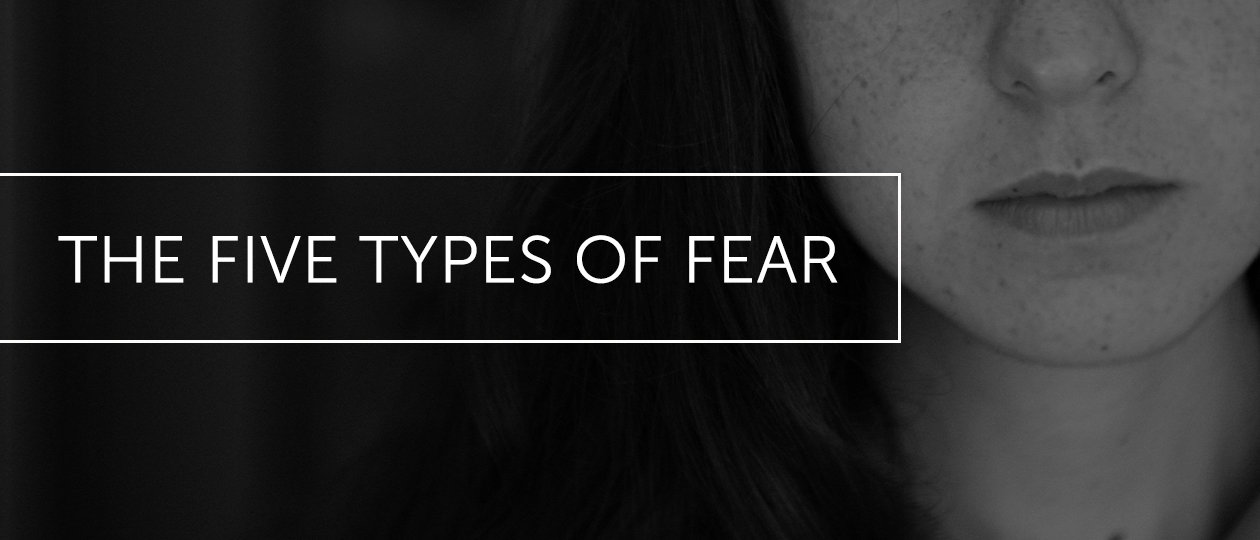The Five Types of Fear
Palms sweating, heart pounding, chest tightening fear. Fear is a palpable emotion, but it can also affect us in more subtle ways. Maybe you are afraid of new situations, so you turn down an opportunity for a promotion at work. You may be afraid of being hurt in a relationship, so you build up walls. No matter what format fear comes in, it can start to rule your life if you spend your life coping and not dealing with fear.
Just like love, hate, joy and other emotions, fear is part of the overall human experience. Thousands of years ago, fear was a survival tool that helped us avoid dangerous situations, and it still plays a role in our survival today. Other times fear is unfounded, as in the case of phobias. Whatever form it takes, fear impacts our daily lives.
What are the main types of fear? Basically, all of our fears, from fear of heights to fear of rejection, fit into one of five buckets described in this insightful Psychology Today article.
Extinction — A more common way to explain this is “fear of death.”
Mutilation— This is the fear of experiencing harm to your body.
Loss of Autonomy— This is the fear of being controlled by circumstances beyond our control. In physical form, it manifests itself as claustrophobia, but it also extends to our relationships.
Separation— We all fear separation at some point -- abandonment, rejection and loss of connectedness.
Ego-death— This is the fear of the loss of one's sense of lovability, capability and worthiness.
While some fears are warranted and even helpful, any fear that becomes active without the incident present is a toxic fear. For example, if a bear is actually chasing you or someone actually pulls a gun on you, the fear response is totally warranted. The issue is when you are either fearing something in advance as with the case of worry or anxiety or if you are still having a fear response to something that happened in the past. Essentially, when you’re safe but still living in fear it can lead to toxic stress and toxic stress can lead to a compromised immune system which can lead to illness and disease.
Unfortunately, many of us live our entire lives stressed out and on the verge of burnout. Scientists are studying the impact of stress more and more. The World Health Organization just recognized workplace burnout as a legitimate disease. Scientists are also studying the impact of toxic stress like abuse, violence or neglect, on children. Relationship problems, pressure at work, an overloaded schedule or bad traffic can put us in this state of high alert. Our stress response glands kick into high gear and continually flood our body with stress hormones. These hormones that are so helpful when reacting to an immediate danger can be deadly over an extended amount of time.
While these situational stressors are more obvious there are also deep-seated, subconscious level fears that cause us stress. The negative cellular memories of your unconscious and subconscious mind send a signal 24/7 -- anger, fear, etcetera -- to the hypothalamus. The hypothalamus controls your body’s flip switch to stress. When this switch is flipped, as I explain in my Love Code video series, it compromises your immune system and leads to illness. On a positive note, this switch can be turned off if you replace memories of fear with memories of love.
Your cellular memories can put you into stress mode whether you are consciously thinking about them or not. In fact, our subconscious memories cause our stress more than 90 percent of the time. That’s right. Healing these negative memories of anger, hatred and unforgiveness is the key to long-term health and happiness.
Using my Memory Engineering and Trilogy method, you become untethered from the toxicity of these memories. Stop living in fear and start living in love. It’s the only way to experience your best life!
Blessings,
Dr. Alex




Add a Comment